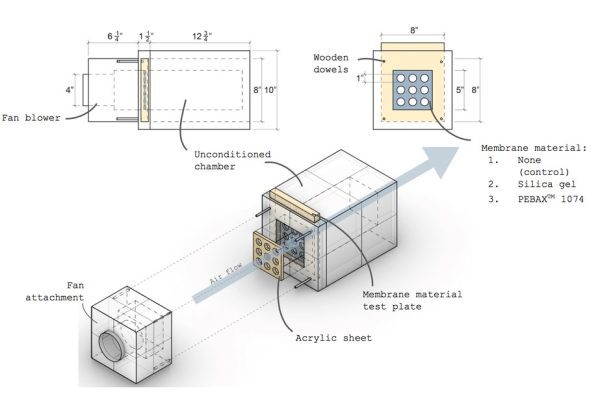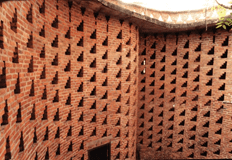Course by Architecture Professor Wins National Prize

Assistant Professor of Architecture Liz McCormick has received a 2021 Buell Center Course Development Prize in Architecture, Climate Change, and Society for her class “High-Performance, Low-Tech.” The prize, which is awarded by Columbia University’s Temple Hoyne Buell Center for the Study of American Architecture and the Association of Collegiate Schools of Architecture (ACSA), recognizes coursework that focuses on the intersections of climate, infrastructure, and architecture.
The five winning courses, chosen by a distinguished jury, will receive a cash prize and support for their implementation at their host institutions. The course proposals will also be presented at the ACSA 109th Annual Meeting, to be held virtually, March 24-26, 2021. Faculty from the University of Houston, Florida A & M University, University of Hawai‘i at Mānoa, and Woodbury University in California were also winners.
“These courses seek the kind of realism that redefines problems and leaves room for imagination,” the ACSA and Buell Center said in a press release. “Overall, faculty and students will use methods and themes that innovate within their institutional settings to address the intertwined causes and effects of climate change.”
McCormick’s course, “High-Performance, Low-Tech,” will build upon a seminar that she is teaching this semester in the School of Architecture – “Build, Test, Iterate, Repeat” – which currently has undergraduate, masters, and PhD students enrolled. Projected to run in the Spring 2022 semester, the interdisciplinary seminar will be open to students from across the campus, and McCormick hopes especially to draw engineering and environmental science students, in addition to architecture students.
 The course “will explore the vernacular strategies associated with rapidly urbanizing regions in order to translate their character, physical qualities, and thermal capabilities to a commercial scale, reducing the reliance on energy-intensive mechanical systems while developing a new, climate and culture-specific urban identity,” McCormick described in the proposal. Students will research traditional and modern vernacular architecture types in regions identified by the United Nations as “rapidly developing” – for example, the Indian Jali screen, which helps to lower the air temperature and improve thermal comfort in naturally ventilated buildings (pictured right). They will then enter a fabrication and experimentation phase, to design experimental devices and procedures to examine the physical impacts of their strategies, followed by the development of visual communications tools.
The course “will explore the vernacular strategies associated with rapidly urbanizing regions in order to translate their character, physical qualities, and thermal capabilities to a commercial scale, reducing the reliance on energy-intensive mechanical systems while developing a new, climate and culture-specific urban identity,” McCormick described in the proposal. Students will research traditional and modern vernacular architecture types in regions identified by the United Nations as “rapidly developing” – for example, the Indian Jali screen, which helps to lower the air temperature and improve thermal comfort in naturally ventilated buildings (pictured right). They will then enter a fabrication and experimentation phase, to design experimental devices and procedures to examine the physical impacts of their strategies, followed by the development of visual communications tools.
McCormick, LEED AP and Certified Passive House Consultant, is a licensed architect, educator, and researcher whose work explores climatically sensitive and contextually appropriate building enclosure designs that both connect the occupant to the outdoors and reduce the dependence on mechanical conditioning. Learn more about her here.